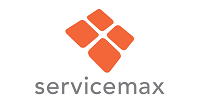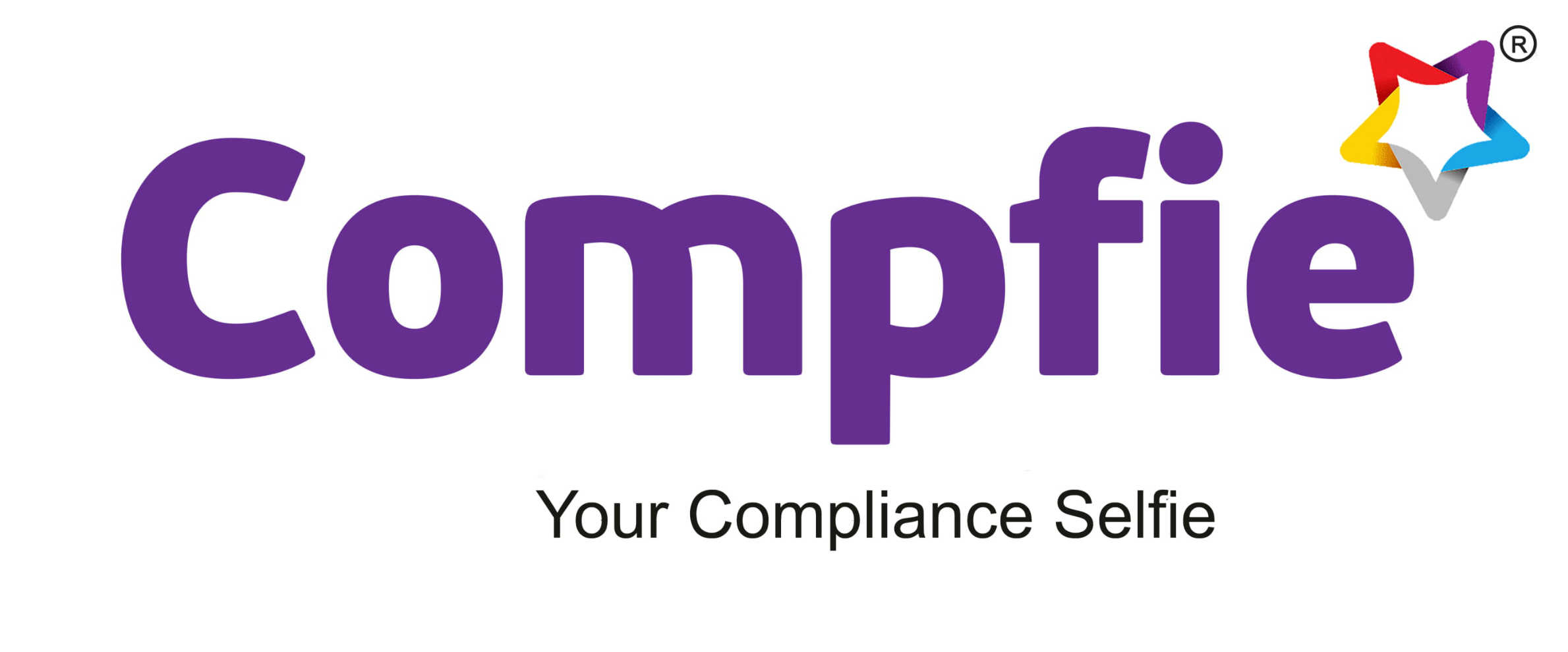Yes, most industrial management software may be accessed via numerous devices and platforms. This adaptability enables users to access the program from their desktop, laptop, tablet, or smartphone, as well as from various operating systems such as Windows, MacOS, iOS, and Android. This improves the overall accessibility of the program, allowing users to manage their industrial operations effectively and efficiently regardless of where they are or what device they are using.
List of Best Industry Management Software
iSPIRT is a industry management software for businesses of all sizes. This powerful tool offers a user-friendly interface to effectively meet the needs of its users. Trusted by many, iSPIRT excels in talent acquisition, helping organizations streamli...Read More iSPIRT
DataNoteis a enterprise solution that ensures data security and successful results without disclosing confidential information to external vendors. Built with the advanced OpenLogic Framework technology, DataNote is the ideal business solution for ma...Read More DataNote
ServiceMax is a premier field service management software that is transforming service organizations globally. Our robust platform offers advanced features to improve your field service operations. By leveraging the potential of the Internet of Thing...Read More ServiceMax
Compfie� is a compliance tracking solution for businesses. Stay on top of all relevant laws in Employment, Corporate, Industrial, Finance, and more with our cutting-edge technology. Our cloud-based platform makes compliance management effortless...Read More Compfie�
MicroMain is a software platform designed for the manufacturing industry. Our all-in-one solution includes CMMS software, equipment tracking, maintenance scheduling, and labor cost optimization. We cater to the unique needs of our clients, helping th...Read More MicroMain
Wonderware - management tool that stores historical data and key performance indicators, enabling easy data collection, report generation, and process analysis for optimal decision making. With its robust features, Wonderware streamlines operations,...Read More Wonderware
Siemens is ahighly adaptable and versatile online management tool for the industry. It guarantees a dependable solution with full compliance. With advanced features such as PLM and MOM integration, it streamlines processes and helps save valuable tim...Read More Siemens
Compiere, the ideal solution for effective inventory management. This open source ERP tool offers comprehensive Materials Management features, simplifying the handling of products, inventory receipts, movements, shipments, and counts within your comp...Read More Compiere
PROS is a management solution for your business. This industry-leading software offers a comprehensive suite of features tailored to catering to the complex management challenges of various industries. From B2B services and logistics to energy and fo...Read More PROS
GoPro is a industry management software that simplifies document, project, and contact management. With its customizable case and process arrangements, it meets the unique needs of each user, enhancing their productivity. Say goodbye to tedious tasks...Read More GoPro
Smart Service is solution for efficient industry management. Streamline your operations with automated scheduling, routing, and tracking tasks for a variety of activities including repairs, construction, oil industry, documentation, HVAC, and pest co...Read More Smart Service
ABS Software solution for companies in the footwear, apparel, and fashion accessories sector. Designed to cater to businesses of all scales, this reliable online management tool simplifies operations including product and warehouse management, sales,...Read More ABS Software
Cerm is a industry management software that caters specifically to narrow web printers. Designed to meet packaging needs, this powerful tool offers global accessibility and multi-company support. Its intuitive interface makes it easy to use while rel...Read More Cerm
Fogwing industrial IoT platform that caters to businesses of all sizes. Our comprehensive services include industrial automation, storage facility climate monitoring, energy management, and logistics tracking. Let us help turn your entrepreneurial dr...Read More Fogwing
Learn More About Industry Management Software
- What Is Industry Management Software?
- What Are The Recent Trends In Industry Management Software?
- Benefits Of Using Industry Management Software
- Important Factors To Consider While Purchasing Industry Management Software?
- What Are The Key Features To Look For In Industry Management Software?
- Why Do Businesses Need Industry Management Software?
- How Much Time Is Required To Implement Industry Management Software?
- What Is The Level Of Customization Available In Industry Management Software?
- Which Industries Can Benefit The Most From Industry Management Software?
- Conclusion
What Is Industry Management Software?
Industry management software, often known as industrial management software or industrial software, is a type of business software that helps firms in the manufacturing or industrial sectors manage and optimize their operations. It is a complete and integrated system that includes a number of tools and features to help streamline processes, increase productivity, and improve overall business performance.
The major goal of industrial management software is to provide real-time visibility over all aspects of a company's activities, such as production, inventory, supply chain, and sales. By providing this comprehensive view, organizations may make informed decisions and adapt quickly to changes in their environment.Another essential characteristic of industry management software is its ability to automate a wide range of activities and procedures, decreasing the need for manual and time-consuming tasks.
This not only saves time but also reduces the risk of human error, resulting in more accurate and consistent results. Automation enables firms to extend their operations and handle bigger volumes without the need for more people.Furthermore, industry management software includes tools for tracking and reviewing data on production and performance, enabling businesses to identify areas for improvement and make data-driven decisions.
This data can also be used for predictive analysis, allowing firms to anticipate and avoid potential problems before they occur.Furthermore, industry management software usually includes tools for scheduling, quality control, supply chain management, and customer relationship management to address the different needs of industrial enterprises. These traits work together to enable the effective and successful management of all aspects of a company's operations.
When searching for industrial management software, you must consider your company's specific goals and requirements to ensure that you select the finest alternative. A reliable industry management software may help you optimize your procedures, increase production, and boost your bottom line, making it a must-have investment for any industrial organization.
What Are The Recent Trends In Industry Management Software?
Over the last few years, the need for industrial management software has significantly increased. This is owing to increased globalization, technical developments, and a changing corporate environment. As a result, the software market has witnessed certain key changes that should be considered while making a purchase.
Below are the most recent trends in industry management software that purchasers should be aware of:
1. Cloud-Based Solutions: One of the most significant changes in the software business is the transition to cloud-based solutions. This simplifies access, scalability, and cost-effectiveness because no expensive gear or installation is required.
2. Artificial Intelligence And Automation: Since the introduction of AI and automation, industry management software has grown more sophisticated and efficient. This technology enables firms to automate tedious operations, analyze data, and make more informed decisions.
3. Big Data And Analytics: The use of big data and analytics is becoming more important in industry management software. These technologies assist not just in making data-driven decisions, but also in spotting patterns and trends to optimize operations and processes.
4. Mobile Applications: With today's fast-paced work environment, mobile accessibility has become critical. Mobile solutions for industry management software now enable users to access data and manage operations from any location and at any time.
5. Integration Capabilities: In today's complicated corporate world, management software must be able to integrate with other systems and applications. This enables for more efficient data flow and eliminates the need for human data entering.
6. User Experience And Interface: User experience and interface are critical selling features for any industry management software. A well-designed and intuitive interface improves the software's accessibility and use.
7. Data Security And Privacy: As the number of cyber-attacks and data breaches has increased, organizations have prioritized data security and privacy. Industry management software now contains strong security capabilities to safeguard sensitive data.
8. Industry-Specific Solutions: To meet the varying needs of various industries, software vendors are now providing industry-specific solutions. This enables firms to have more customized and efficient software that matches their specific requirements.
Benefits Of Using Industry Management Software
Important Factors To Consider While Purchasing Industry Management Software?
When it comes to choosing industrial management software, there are numerous key elements to consider. This type of software is intended to streamline and optimize many elements of a business, therefore it is critical to select the best option for your individual requirements.
Here are the most important considerations to consider before making a purchase.
1. Determine Your Business Needs And Goals: Before you even consider different software options, you must first establish your business's needs and goals. Do you require software for project management, inventory control, or customer relationship management? What specific characteristics are required for your business? A comprehensive grasp of your requirements will allow you to limit down your possibilities and identify the best fit.
2. Evaluate The Features And Functionality: Different industrial management software provides various features and functionalities. It is critical to assess these based on your company's demands. Make a list of must-have features and compare them to other software solutions. Look for capabilities like as task management, resource allocation, data visualization, and reporting that are essential for effectively operating your industry.
3. Consider Scalability And Flexibility: Your software requirements will expand in tandem with your business. As a result, it's critical to acquire software that is scalable and adaptive to your changing requirements. This will spare you the trouble of switching to new software in the future. Also, seek for software that can interface with other tools and systems you already use.
4. Evaluate The User Interface And Usability: The success of any software is determined by how user-friendly it is. Complex and difficult-to-use software can cause annoyance and reduce productivity. To get a feel for the software's interface and usefulness, demo it or use free trial versions. Look for user-friendly capabilities, customisable dashboards, and intuitive navigation.
5. Look Into Customer Support And Training Opportunities: Implementing new software can be difficult, and having adequate customer support and training alternatives can significantly improve its performance. Look for a software vendor that provides comprehensive onboarding and training programs, as well as great customer support. This way, you can ensure a seamless transfer and receive assistance as needed.
6. Consider The Costs: Finally, analyze the software's prices. While some merchants accept one-time payments, others may use a monthly subscription model. Consider the pricing structure, any additional expenditures for add-ons or upgrades, and the software's potential return on investment. Make careful to purchase software that fits your budget and provides the best value for your money.
What Are The Key Features To Look For In Industry Management Software?
Industry management software, often known as business management software, is an effective tool for streamlining and optimizing a company's daily operations. With so many features and capabilities available, it might be difficult to choose the ideal software for your particular sector. So, what vital elements should you search for in industry management software?
Let's investigate:
1. Industry-Specific Functionality: The most crucial factor to consider while selecting industry management software is industry-specific functionality. Each sector has its own set of processes and requirements, and the software should be tailored to those needs. For example, a manufacturing corporation might require different characteristics than a hospital institution.
2. Comprehensive Business Management: The software should be able to manage finances and inventories, as well as track sales and customer interactions. This lowers the need to use several tools, streamlines operations, and increases overall efficiency.
3. Customization Options: Each company is unique, as are their needs. Look for software with customization options so you may adjust it to your individual needs. This guarantees that your business processes are supported optimally.
4. Scalability: As your firm expands, you will require more complex features and higher capacity. Make sure the software you chose is expandable to meet your future needs and easy to combine with other tools and systems.
5. User-Friendly Interface: Any software's effective deployment and acceptance depends on its user-friendliness. Look for a solution that is simple to use, has an intuitive design, and has user-friendly features such as drag and drop customization.
6. Cloud-Based Or On-Premises: Another key factor to examine is whether the software is hosted in the cloud or on-premise. Cloud-based solutions have the benefit of remote access and continual updates, whereas on-premises software can improve data protection and management.
7. Integration Capabilities: In today's interconnected world, software that can work seamlessly with other tools and systems is critical. This eliminates the need for manual data entry and transfer while also providing a comprehensive perspective of your business processes.
8. Customer Support: When purchasing industrial management software, it is critical to ensure that the provider provides enough customer support. This includes training, frequent upgrades, and technical support. Having a consistent support system can save you time, money, and frustration in the long term.
9. Mobile Compatibility: With the growing popularity of remote work, mobile compatibility is becoming increasingly vital. The software should include a mobile app or responsive design so that you may access and control your company activities while on the go.
10. Cost-Effectiveness: Finally, analyze the software's cost and ROI. Look for a solution that includes the necessary features at a reasonable cost and can give long-term benefits to your company.
Why Do Businesses Need Industry Management Software?
Businesses rely on industry management software to streamline operations, boost productivity, and achieve their objectives in a fast-paced and competitive environment. This software automates a variety of operations and gives users with real-time data and insights, making it an indispensable tool for staying ahead of the competition. First and foremost, industry management software enables firms to manage many areas of their industry, including production, inventory, supply chain, and financing.
By centralizing these operations, we eliminate the need for different systems and manual tracking, saving time and lowering the chance of errors. This software also provides extensive analytics and reporting capabilities, enabling firms to make data-driven decisions and find areas for development. With real-time analytics, firms can quickly adjust to changing market situations, make educated decisions, and improve overall performance.
Furthermore, industrial management software promotes collaboration and communication inside a business. It enables seamless integration across departments, allowing teams to collaborate more efficiently and effectively. This leads to better coordination, increased production, and a more efficient workflow. Furthermore, this program includes strong security capabilities to protect sensitive data and reduce the danger of data breaches.
Businesses can rest certain that their information is secure thanks to data encryption, access controls, and regular backups. Finally, industry management software is both scalable and customizable, making it appropriate for enterprises of all sizes and sectors. It may be adjusted to fit individual business requirements and is easily adaptable to expansion and operational changes.
How Much Time Is Required To Implement Industry Management Software?
The time necessary to adopt industry management software varies depending on a number of factors, including the complexity of your industry and business processes, the size of your organization, and the exact features and customisation you need. On average, the implementation procedure can last from a few weeks to several months. It is vital to highlight that hurried implementation can result in long-term troubles and inefficiency.
As a result, it is advised that you take the time required to properly plan and execute the implementation process. The first stage in adopting industry management software is typically to establish the appropriate infrastructure and integrate the software with your existing systems. This often includes installing software, setting servers and networks, and migrating data from legacy systems.
The next step is to customize and configure the program to meet your specific industry and business demands. This can include designing workflows, assigning user permissions, and generating reporting and dashboards. Employee training and onboarding are also important aspects of the implementation process.Depending on the software's complexity, it can take many days or weeks to ensure that all staff are comfortable and proficient in utilizing the new system.
Finally, intensive testing and troubleshooting are required to ensure that the program functions properly and that all issues have been fixed prior to full adoption. It is critical to collaborate closely with the software provider throughout the implementation process to guarantee a seamless and effective transition. Clear communication and a well-defined project strategy can help to expedite the implementation process and reduce potential delays.
What Is The Level Of Customization Available In Industry Management Software?
Industry management software provides a variety of features and capabilities to assist firms simplify operations and increase productivity. Buyers should examine the level of customisation offered with these software solutions. Customization refers to the capacity to modify software to suit business requirements and processes.
In the field of industry management, each organization may have a unique set of requirements and operations, making customisation an important consideration in software selection. Most industrial management software provides a high level of customisation, allowing organizations to tailor the software to their own procedures and industry requirements. This flexibility allows businesses to design a solution that is tailored to their own goals and process, rather of complying to the software's restrictions.
Customization options in industrial management software differ based on the vendor and solution. Businesses may generally modify everything, including the user interface and data fields, as well as reporting and procedures. Some applications may also allow you to create bespoke modules or interact with other tools to satisfy special requirements.
Before deciding on a software solution, you should carefully consider the customization choices and ensure that they meet your company's needs. Consider the software's adaptability to your operations, the level of technical knowledge necessary for modification, and the possibility of future updates and adjustments. Furthermore, connect with the software provider and discuss your customisation requirements to determine the amount of support and resources available.
A reputable software vendor will collaborate with you to develop a tailored solution that suits your company's aims and objectives. In conclusion, customization is an important part of industry management software since it allows organizations to tailor the software to their own needs and operations. It is critical to thoroughly assess the customization choices and speak with the provider to guarantee a successful and specific implementation.
Which Industries Can Benefit The Most From Industry Management Software?
Industry Management Software, commonly known as Enterprise Resource Planning (ERP) software, is a sophisticated tool that simplifies and automates business processes, offering firms a comprehensive solution for managing their operations.
While this software can benefit firms in a variety of industries, some industries can gain even more from incorporating it into their operations.
1. Manufacturing Industry: Manufacturing organizations have intricate operations that include raw material acquisition, production planning, inventory control, quality management, and supply chain management. Industry Management Software can assist integrate these operations by offering a real-time picture of the complete manufacturing process, assuring timely delivery and efficient inventory management.
2. Retail Industry: The retail industry handles a huge number of sales transactions, inventory management, and consumer data. Industry Management Software can help retailers manage these processes more efficiently by providing a single platform for inventory management, order tracking, and customer relationship management (CRM). It also provides insights into sales trends, allowing retailers to make data-driven decisions.
3. Healthcare Industry: With ever-changing laws and a requirement for precise data administration, the healthcare business can tremendously benefit from Industry administration Software. Healthcare facilities can use this software to manage patient data, insurance claims, billing, and inventory, guaranteeing compliance and efficiency.
4. Construction Industry: Construction projects are complex, with various stakeholders, budgets, and timeframes. Industry Management Software can assist manage these projects more efficiently by giving real-time reports on project status, budgeting, and resource allocation. It also aids in vendor management and improves communication among all parties concerned.
5. Service Industry: Industry Management Software can help consulting, law, and accounting companies optimize internal operations, manage client information, and track billable hours. This program improves service delivery efficiency and accuracy, which leads to higher customer satisfaction and revenue development.
Conclusion
Finally, Industry Management Software is an effective tool for firms seeking to streamline operations, boost efficiency, and maximize profitability. Its inventory tracking, project management, and data analytics capabilities make it an invaluable asset in any industry. When considering acquiring Industry Management Software, it is critical to assess your company's needs, budget, and scalability choices.
Conduct extensive research, read reviews, and request demos to determine the best option for your firm. Remember to choose a reliable vendor and look at their customer support and training opportunities. Set reasonable expectations and devote time in teaching your personnel to use the product properly. Finally, Industry Management Software can help your company stay organized, automate activities, and make data-driven decisions. It's a promising investment that can revolutionize your business and drive growth. With the correct software and implementation, your firm may achieve new heights of success.
Industry Management Software FAQ's
Can Industry Management Software Be Accessed Across Multiple Devices And Platforms?
Is Industry Management Software Future-Proof And Adaptable To Emerging Technologies Like AI, Blockchain Or IoT?
Industry Management Software is developed to meet the ever-changing needs and problems of enterprises across sectors. It was created with flexibility in mind, making it future-proof and easily adaptable to upcoming technologies like AI, blockchain, and IoT. The software's constant updates and developments ensure that firms can stay ahead of the curve and leverage new technologies to boost efficiency and productivity in the long run.
Is There A Free Trial Offered To Assess Industry Management Software Before Committing?
Yes, many industry management software companies provide a free trial time for firms to evaluate the platform before making a purchase. This allows businesses to test the program and its features, assess usability, and determine whether it fulfills their specific requirements. It is recommended that you use free trials to confirm that the software is a good fit for your company before making a purchase decision.
Does Industry Management Software Offer Data Security Features And Meet Regulatory Compliance Standards?
Yes, industry management software includes comprehensive data security capabilities that secure sensitive corporate information from cyber threats. It also assures compliance with regulatory requirements like as HIPAA and GDPR in order to protect client data and comply with industry-specific legislation.
With strong encryption mechanisms and rigorous access controls, industrial management software provides a secure and compliant platform for enterprises to manage their operations efficiently. This promotes customer trust and protects the organization's market reputation.
Can Industry Management Software Integrate Seamlessly With Existing Tools And Platforms?
Yes, most industry management software is designed to work easily with other products and platforms. Businesses can simply link their industry management software to other important tools and platforms such as CRMs, ERPs, accounting software, and more thanks to comprehensive APIs and configurable integration options.
This enables for a more streamlined and effective procedure, resulting in increased production and data accuracy. Furthermore, the integration process is usually quick and straightforward, reducing disruptions to your business operations.
















